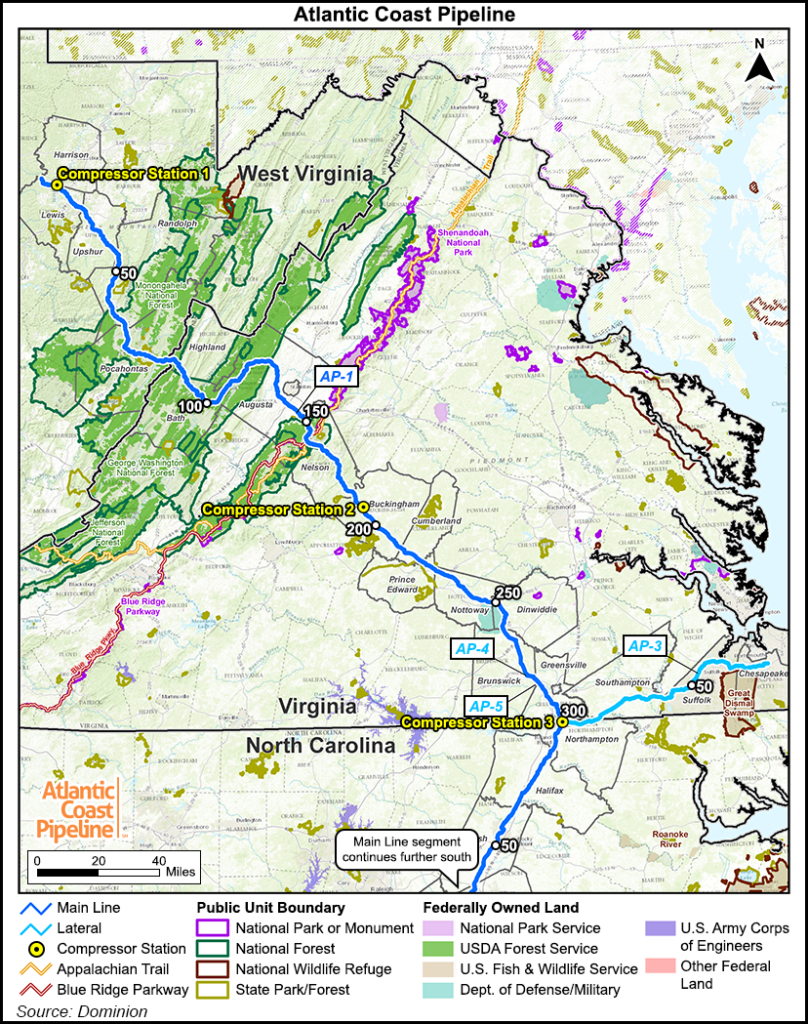Infrastructure | NGI All News Access | Regulatory
ACP Construction Still Stalled After Court Denies Emergency Motion
Construction of the Atlantic Coast Pipeline (ACP) is still on hold after the U.S. Court of Appeals for the Fourth Circuit refused to narrow its order staying the implementation of key federal authorizations that forced the project to stop work early last month.

Construction was stopped in December along the entire 600-mile route when the court stayed the U.S. Fish and Wildlife Service’s (FWS) revised biological opinion and modified incidental take statement (ITS) for the project. The court denied ACP’s emergency motion to clarify the stay late last Friday and limit its scope, setting the stage for an even longer fight.
“In developing this project over the last four years, we have taken extraordinary care to protect the sensitive species at issue in this case,” said ACP spokesman Karl Neddenien. “We will vigorously defend the agency’s decisions and the measures we’ve taken to protect the species in oral arguments before the court in March.”
Work on the pipeline was also temporarily stopped last year when the Fourth Circuit first vacated the ITS issued under the Endangered Species Act. The permit is required for activities that could harm threatened wildlife.
FWS later revised the biological opinion and modified the ITS in response. But environmental groups led by the Sierra Club argued that the agency pushed the process too quickly for political reasons, compounding risks for the Indiana Bat, the Clubshell Mussel, the Rusty Patched Bumble Bee and the Madison Cave Isopod. The court agreed to stay the reissued authorizations pending appeal.
In its motion to clarify the stay, ACP had asked the court to limit the order to the 100 miles or so in West Virginia and Virginia where those four species are located rather than along the entire route the FWS authorizations cover. It had also asked the court to reconsider the order entirely.
In an update released last week, ACP said it expects to restart construction sometime in 2Q2019 and made no change to its expected mid-2020 full in-service date for the project, which faces other legal challenges including to its route through national forests and its Nationwide Permit 12.
Backer Dominion Energy Inc. said last week that its near-term earnings contribution from ACP would be “modestly lower than had been expected” before last month’s work stoppages. Duke Energy Corp., Piedmont Natural Gas and Southern Company Gas are also partners in the project.
ACP would carry 1.5 Bcf/d of Appalachian natural gas from West Virginia, through Virginia and North Carolina to Southeast markets.
© 2024 Natural Gas Intelligence. All rights reserved.
ISSN © 1532-1231 | ISSN © 2577-9877 |
